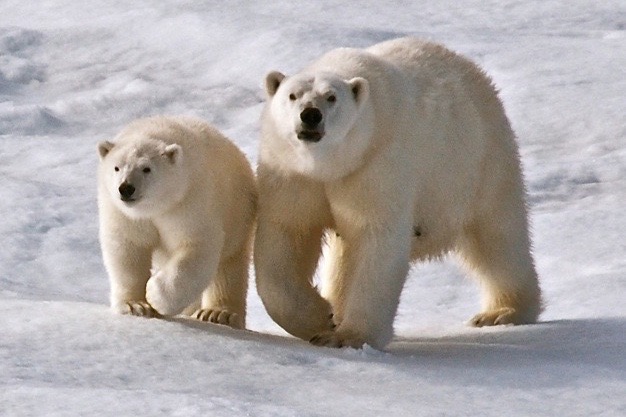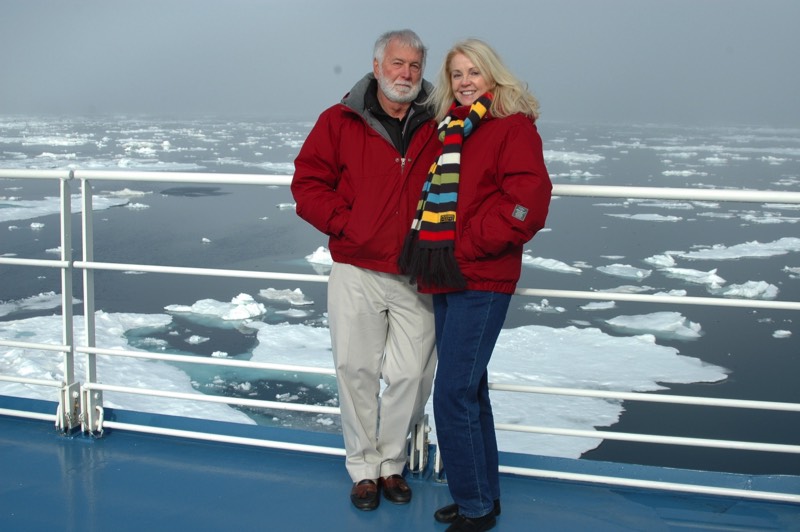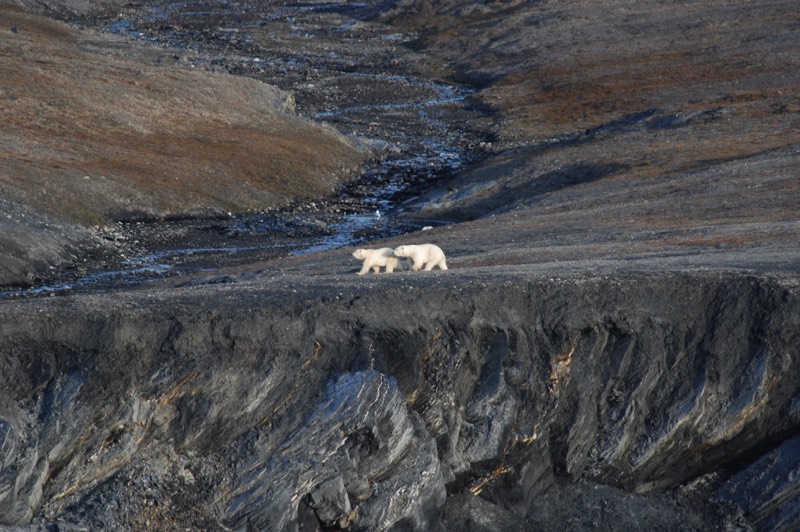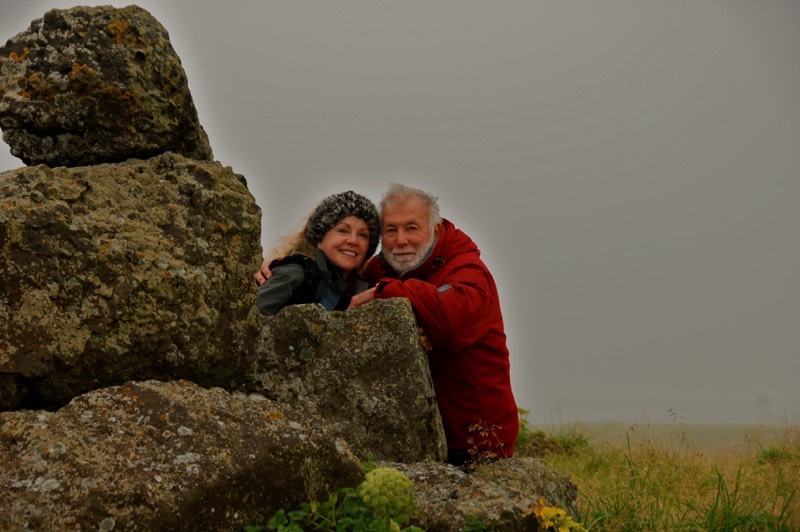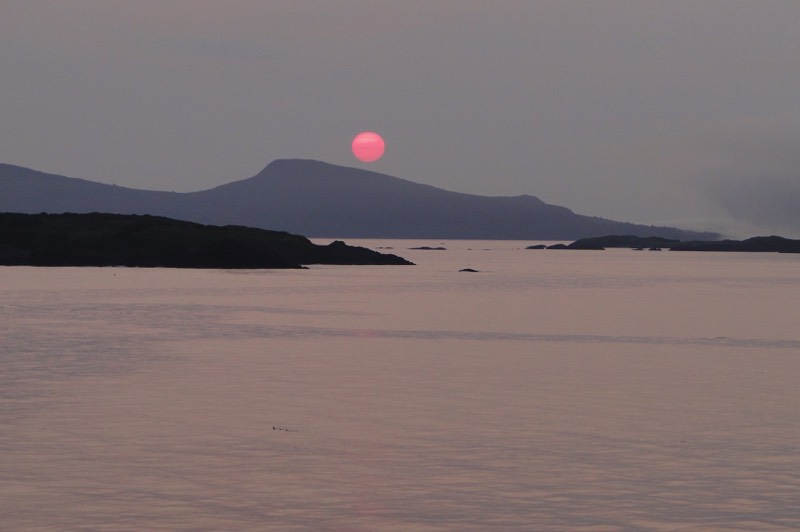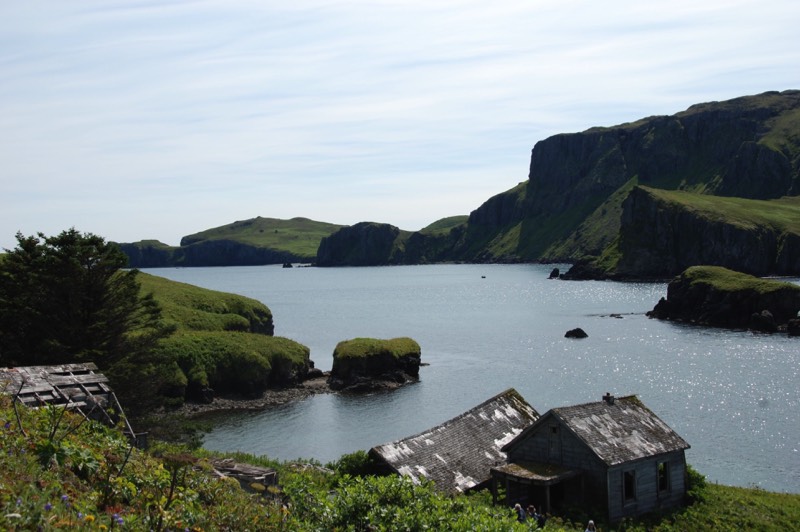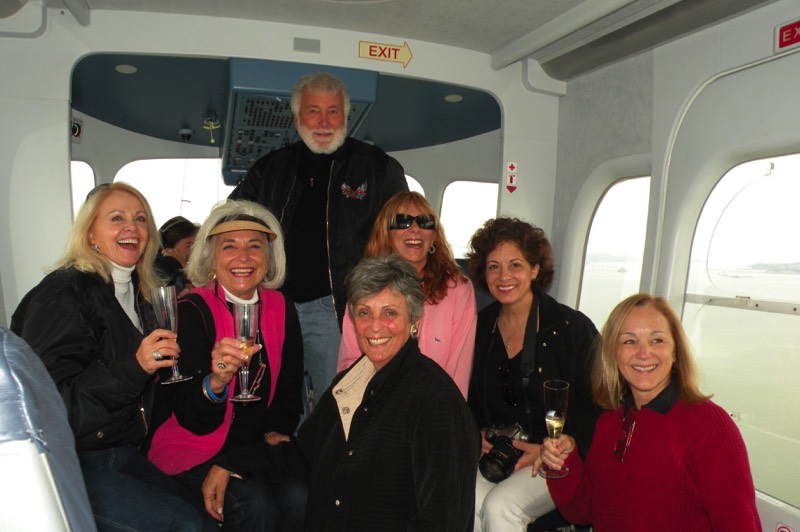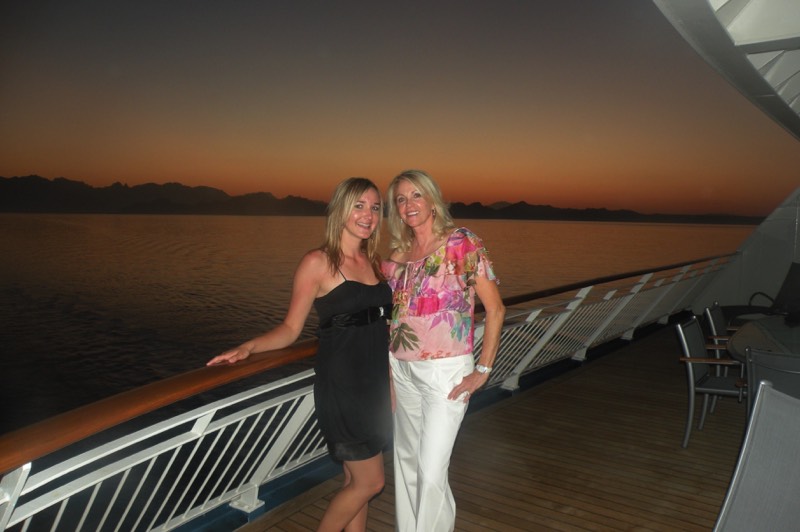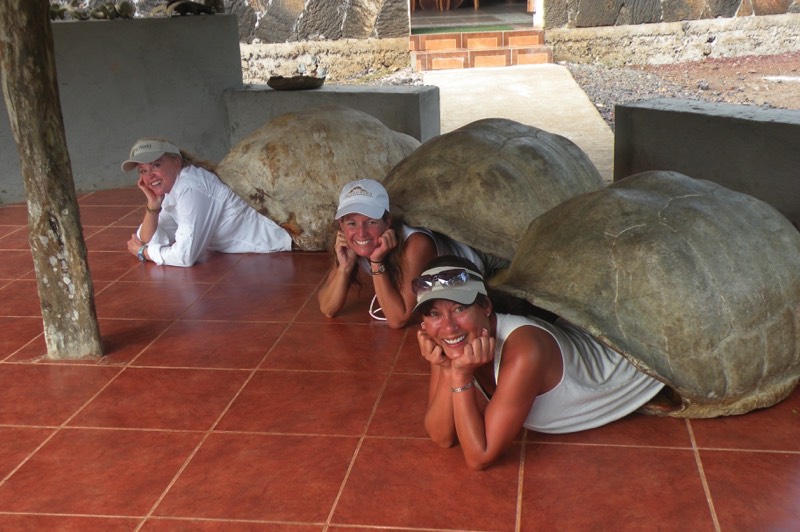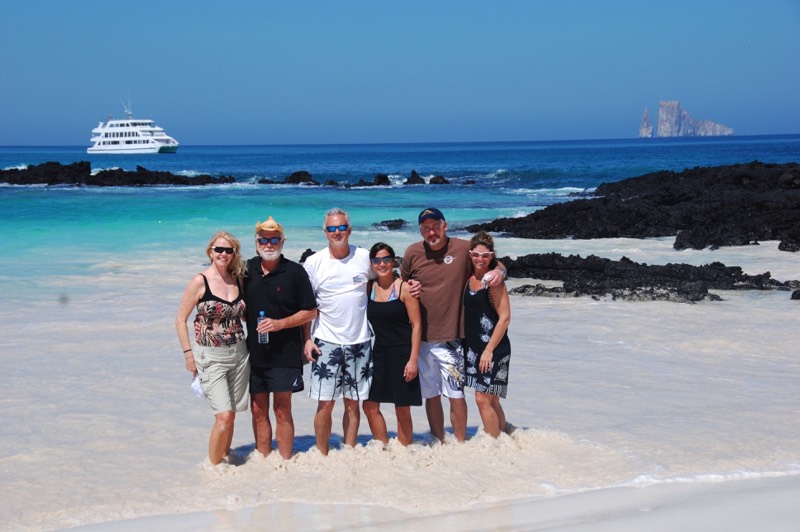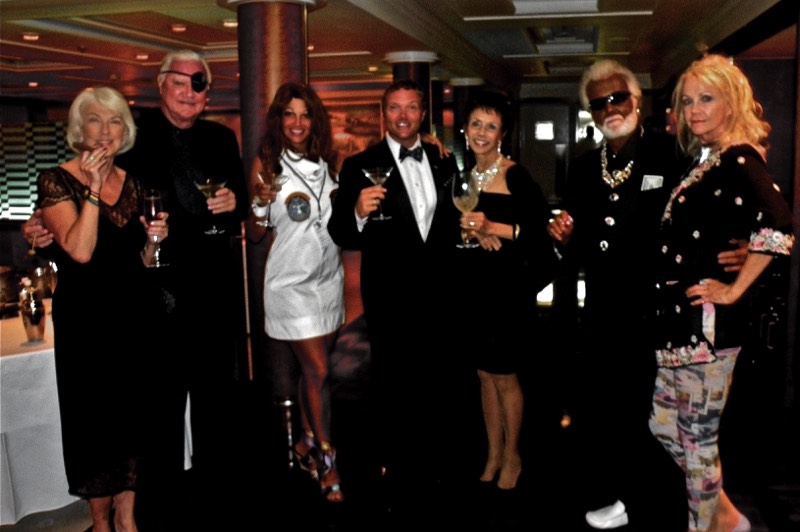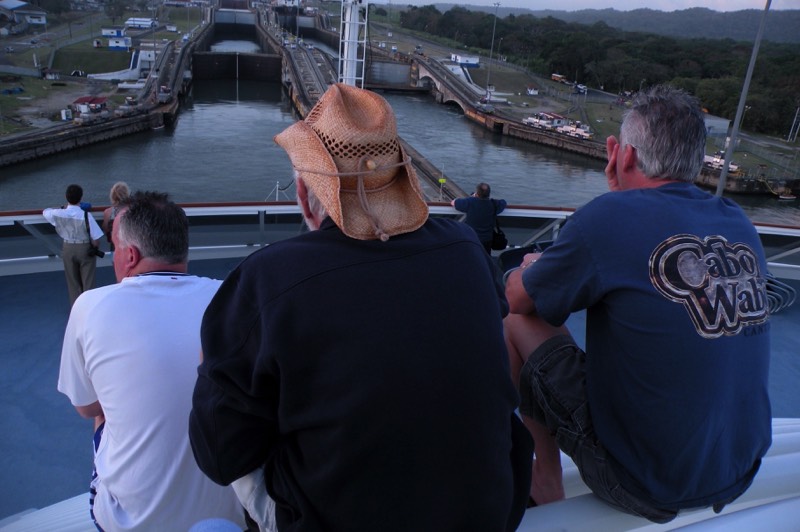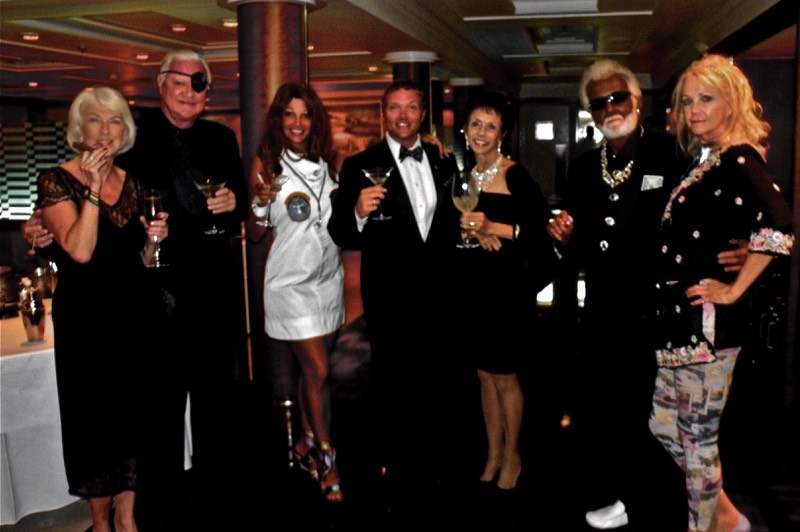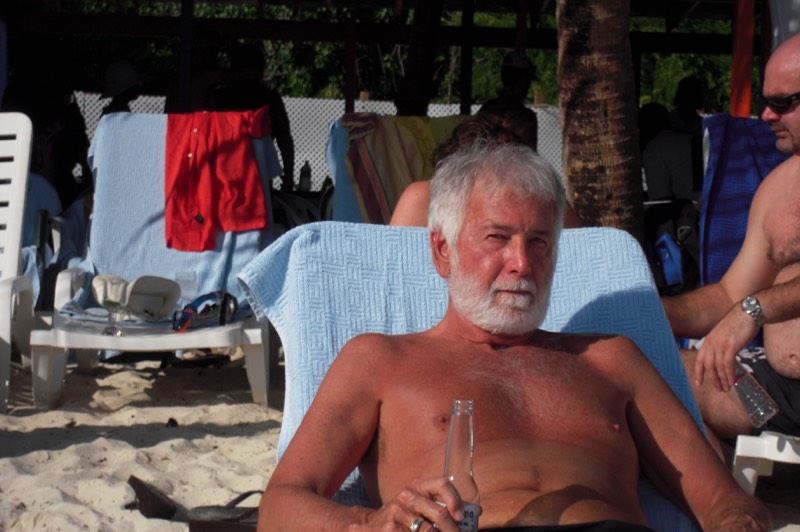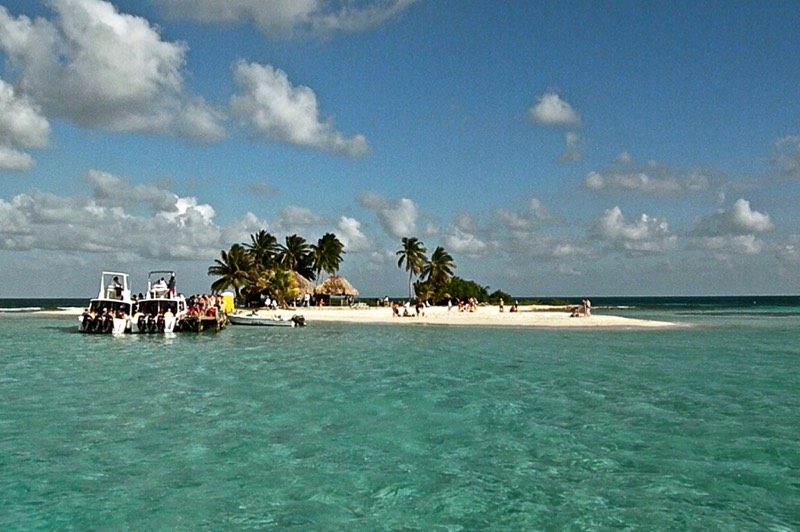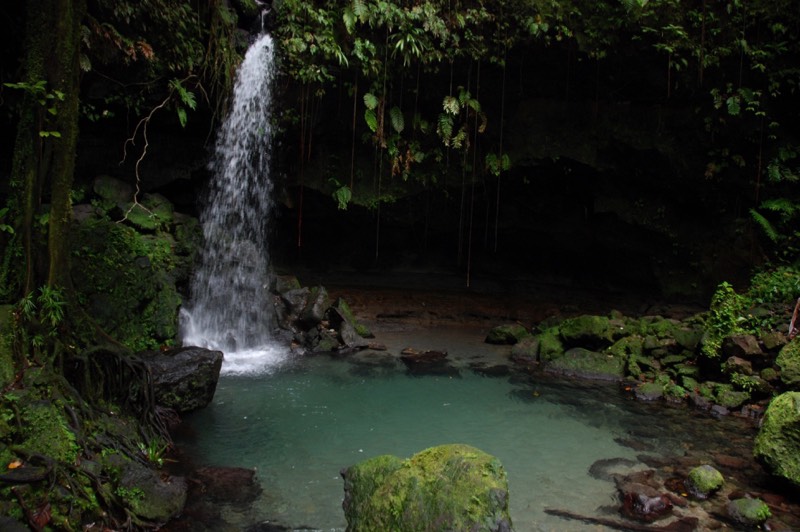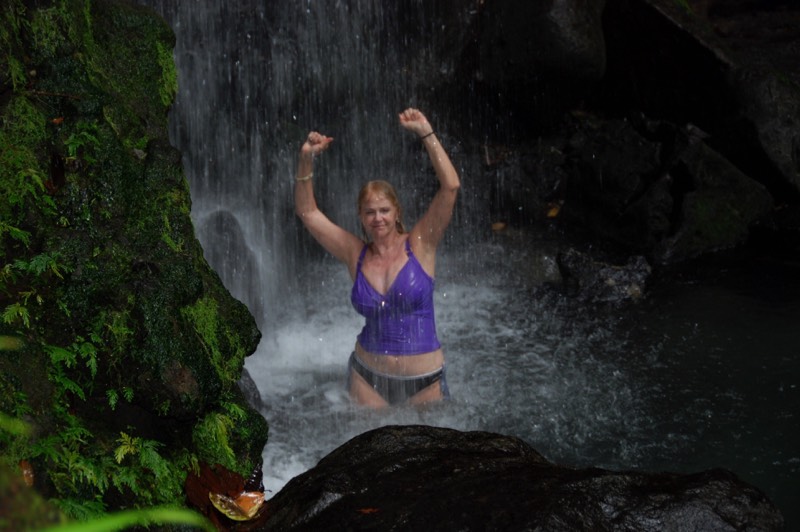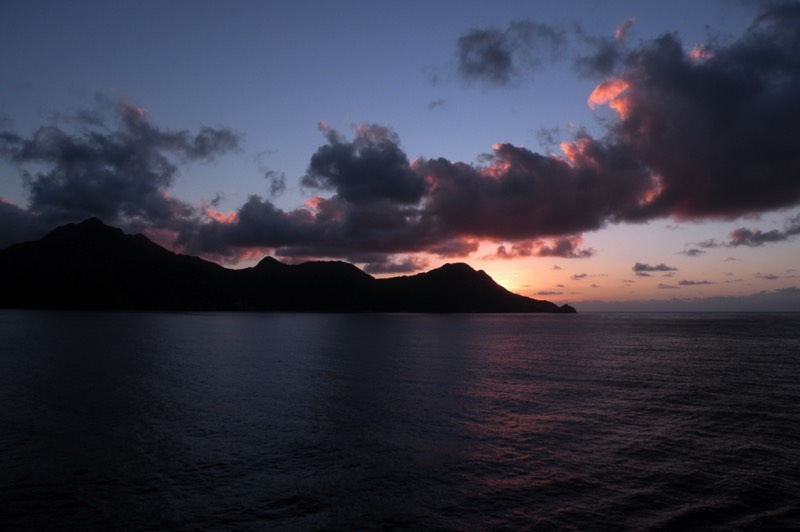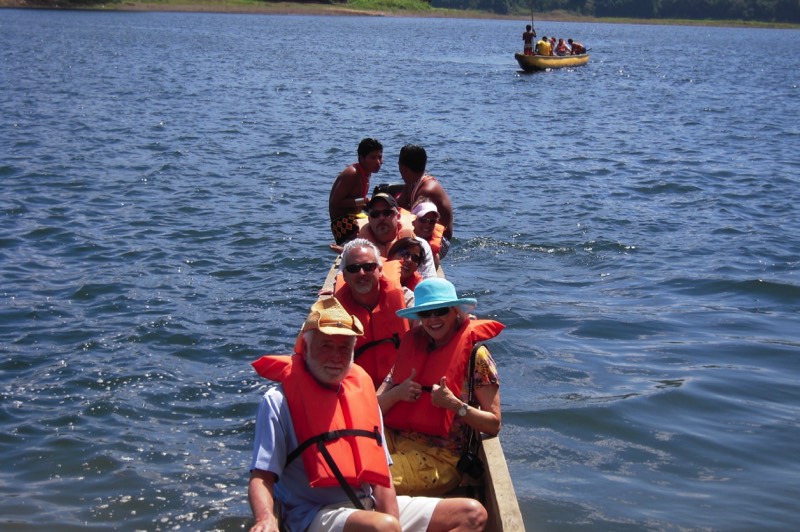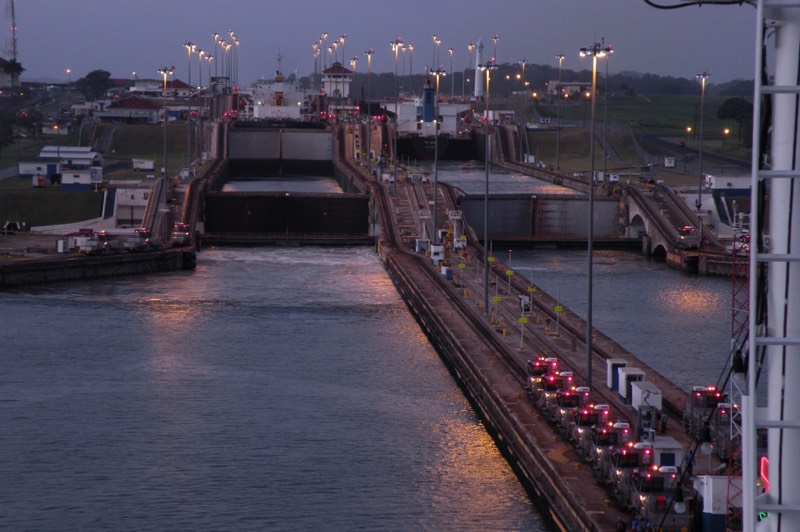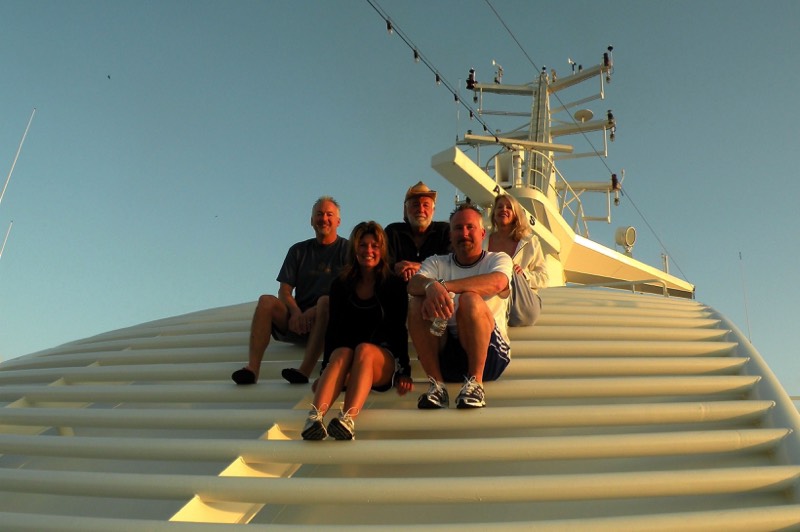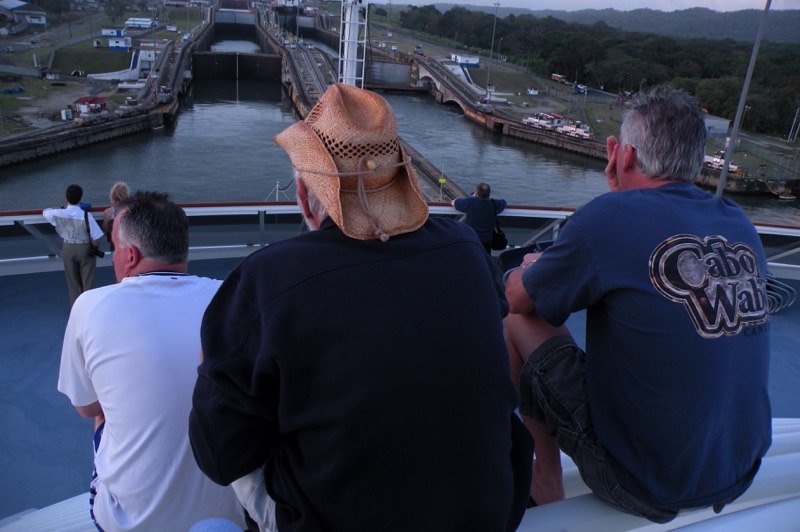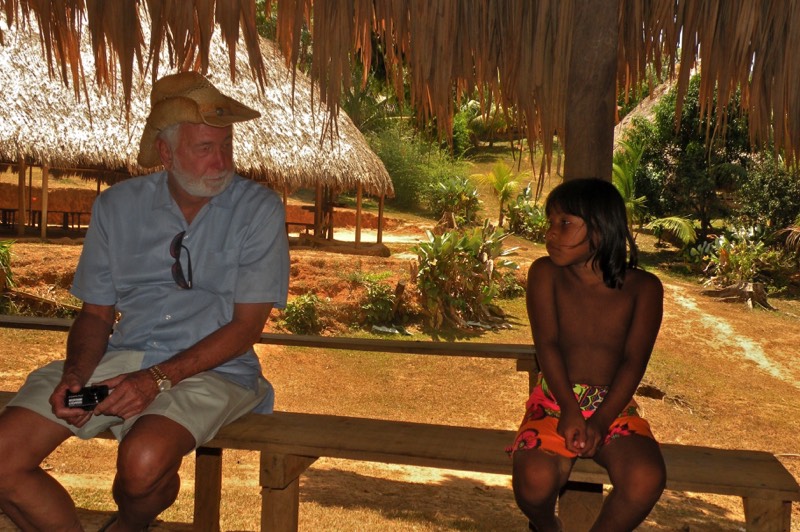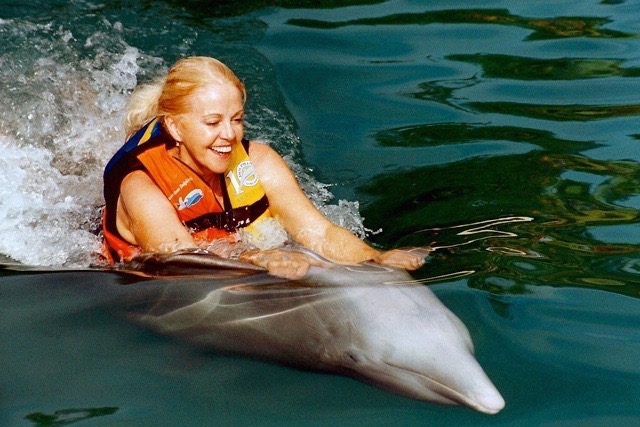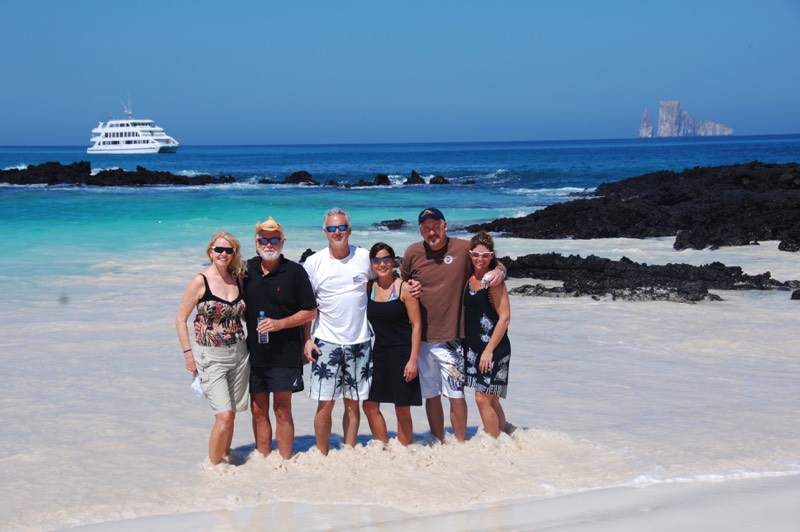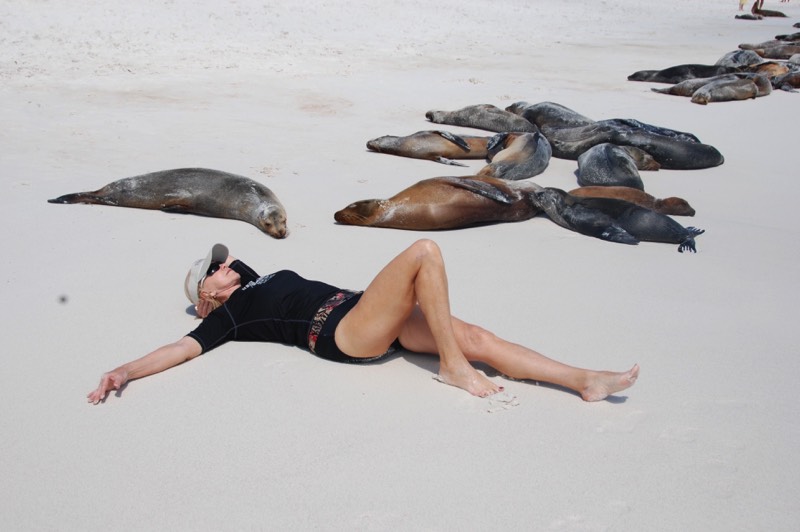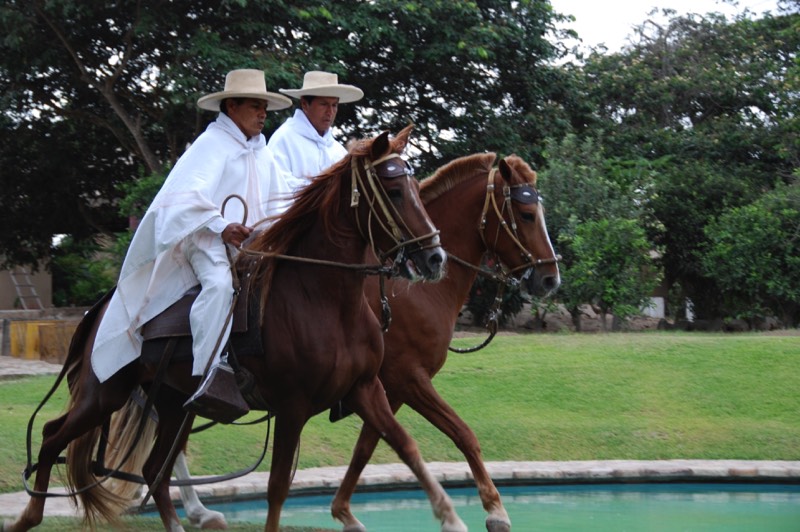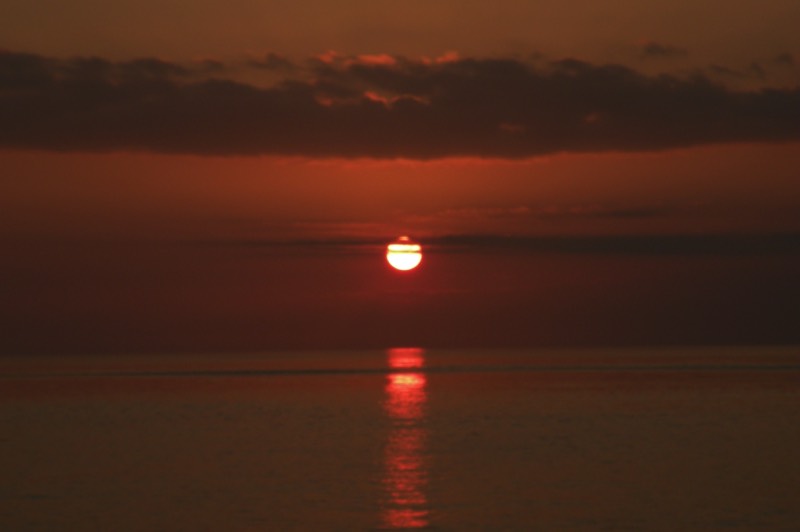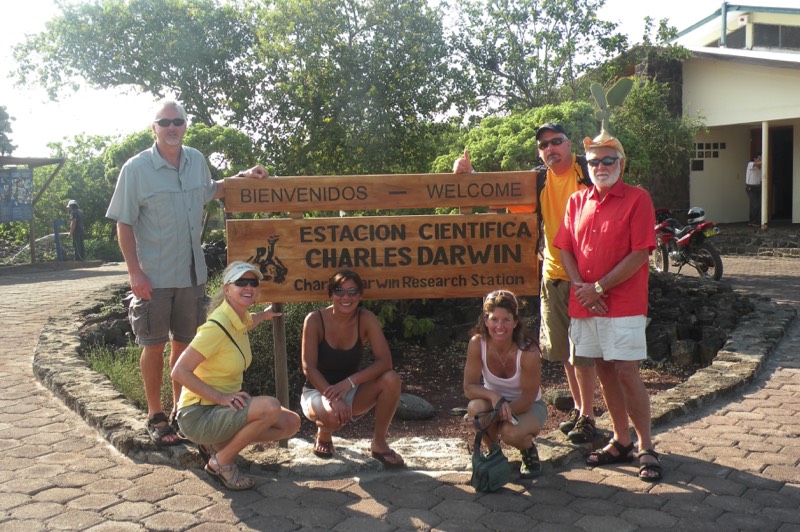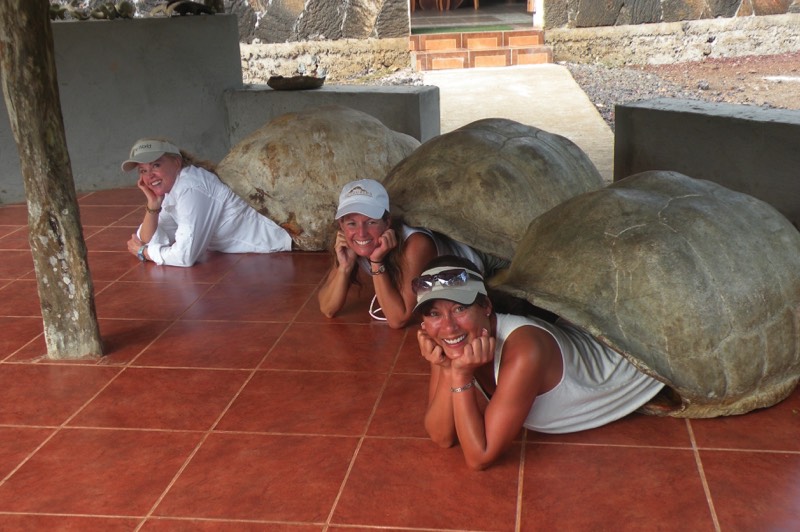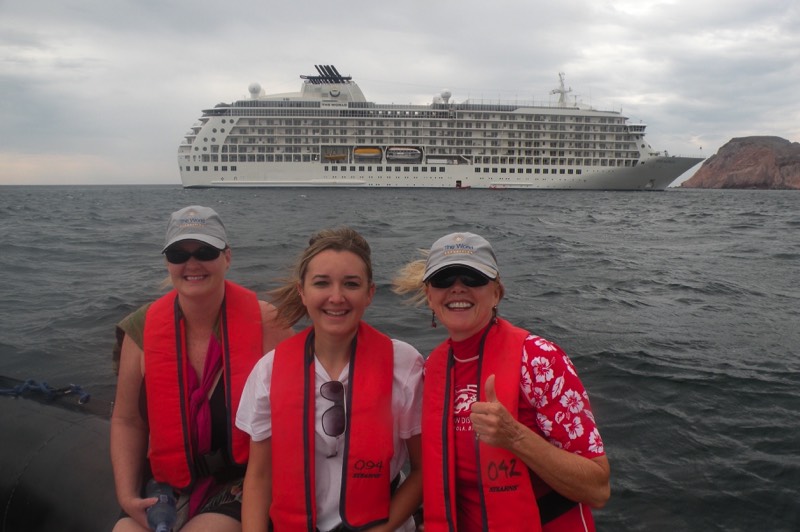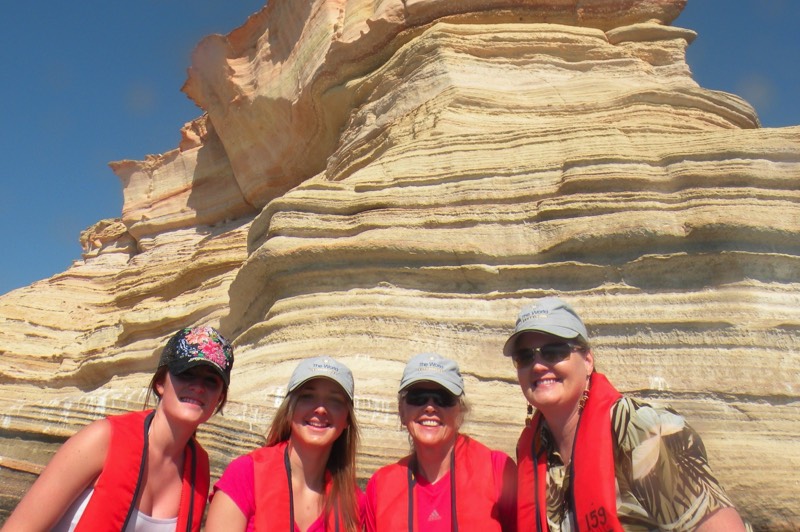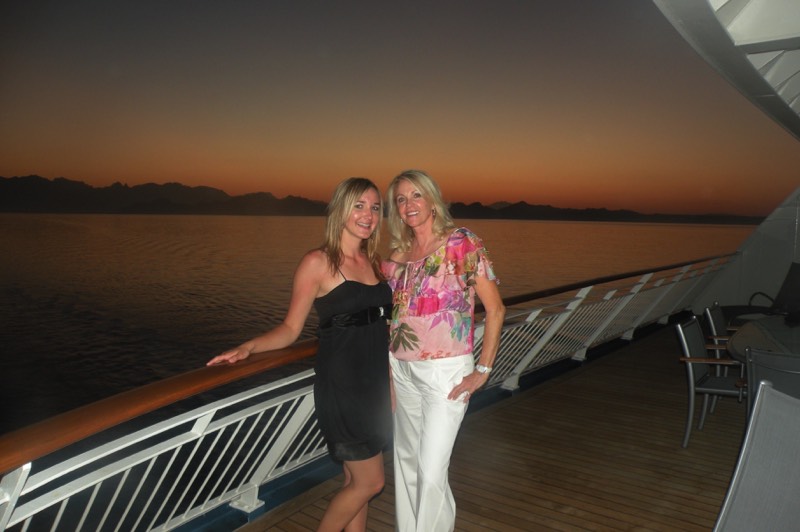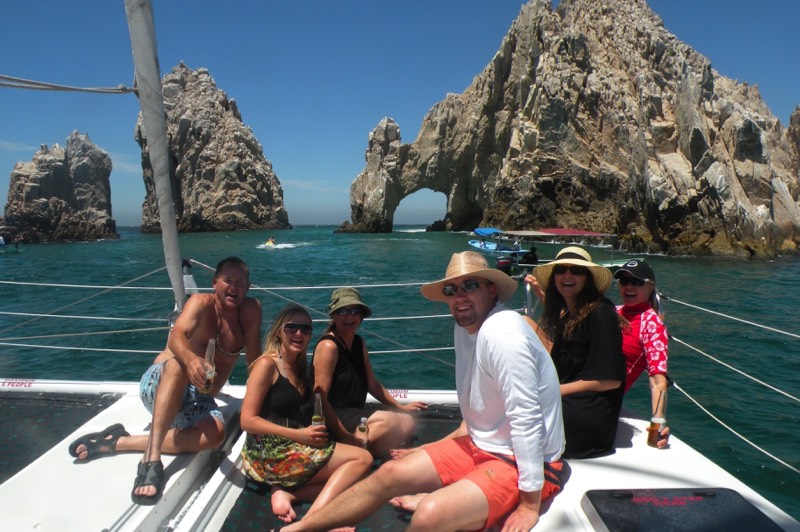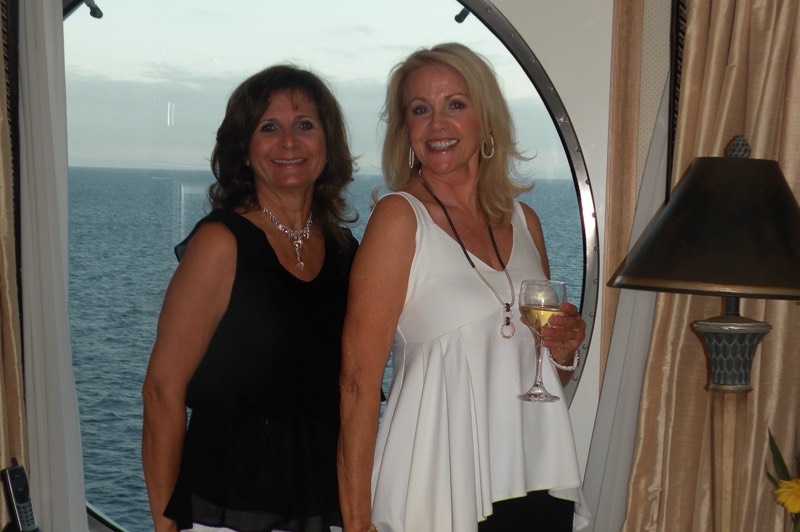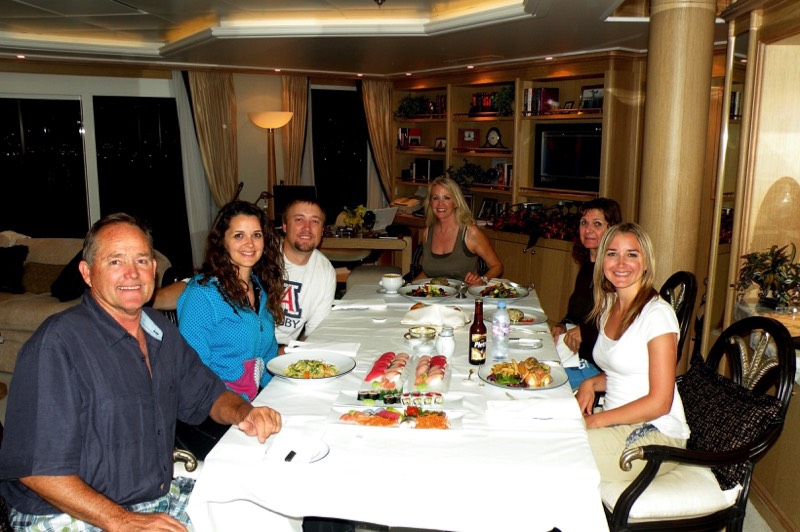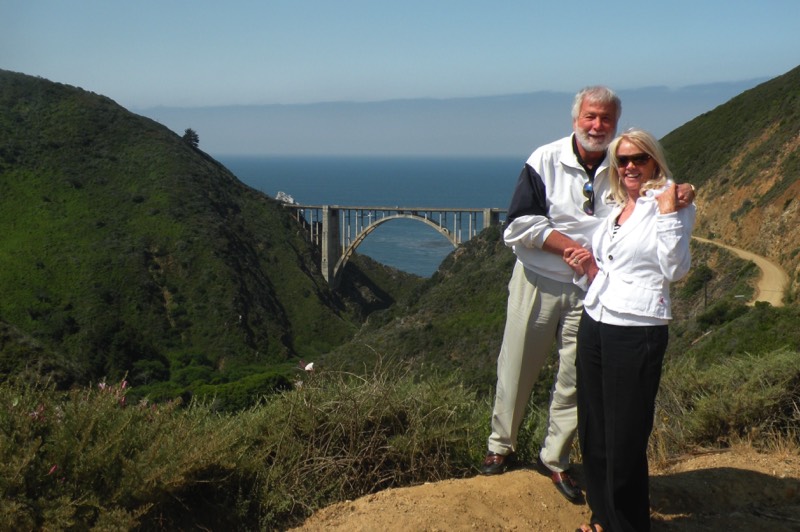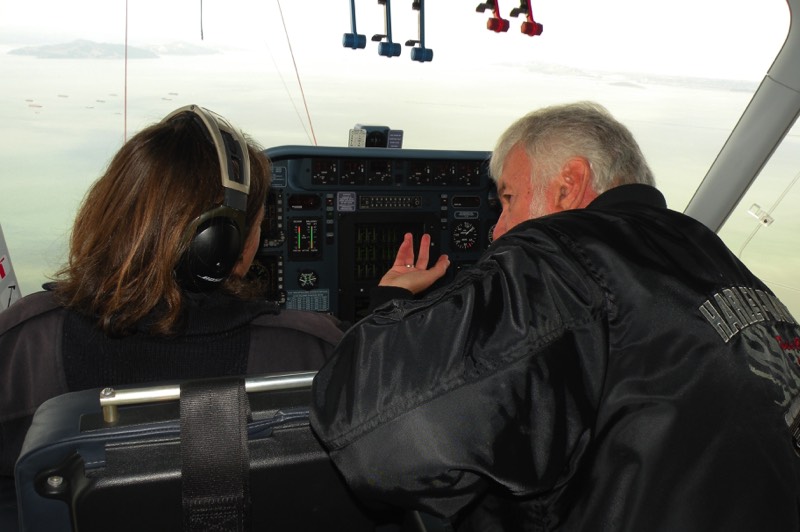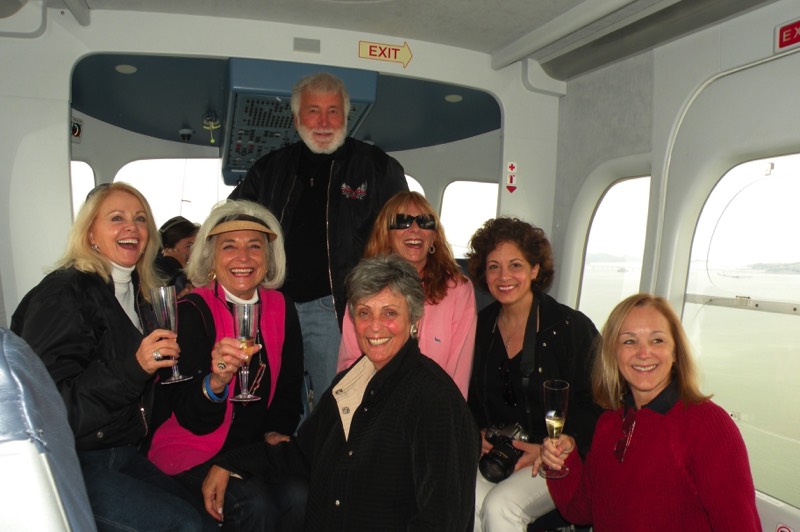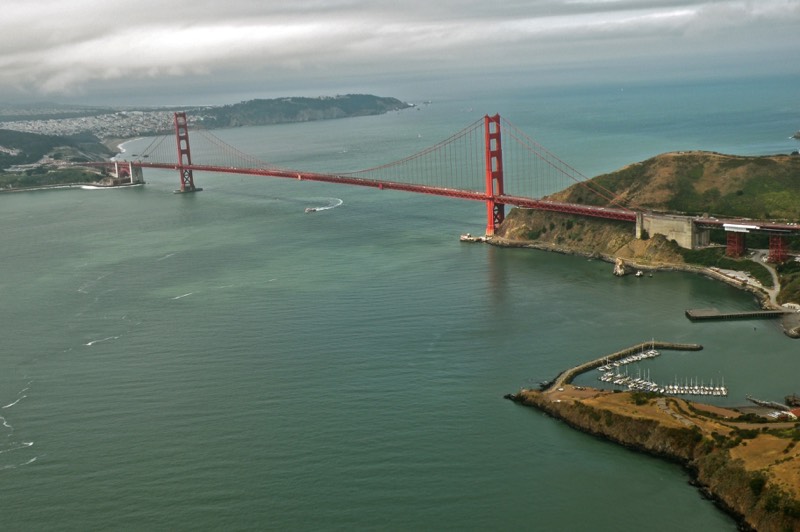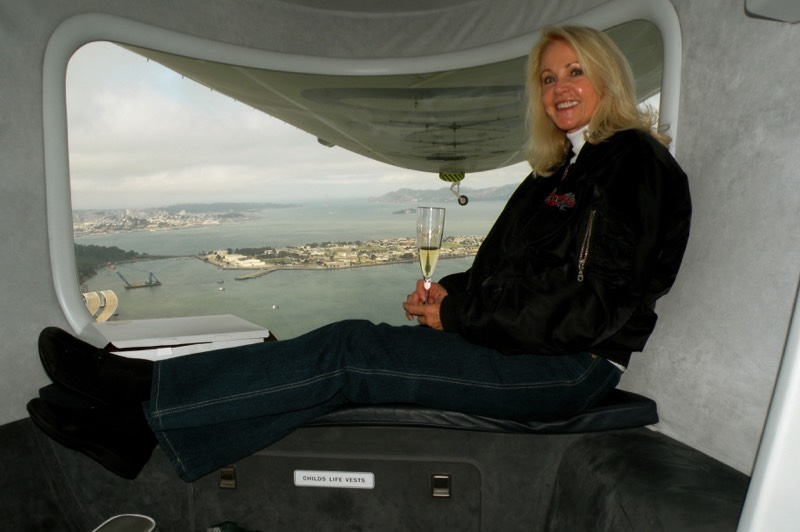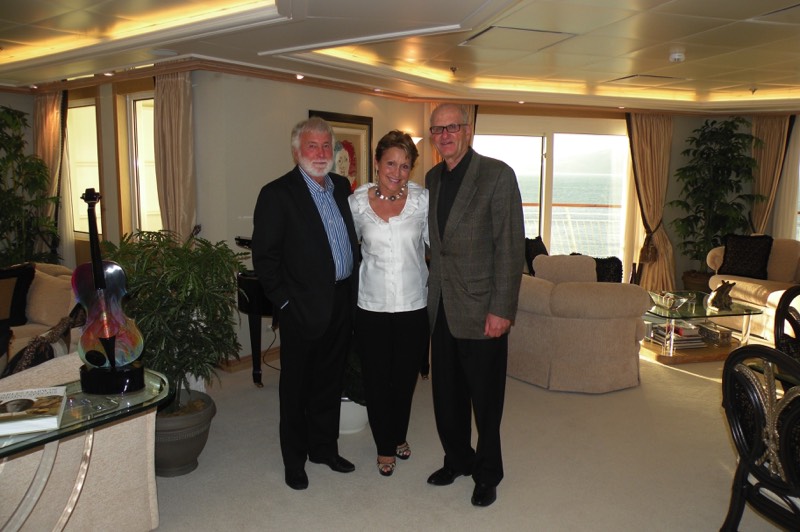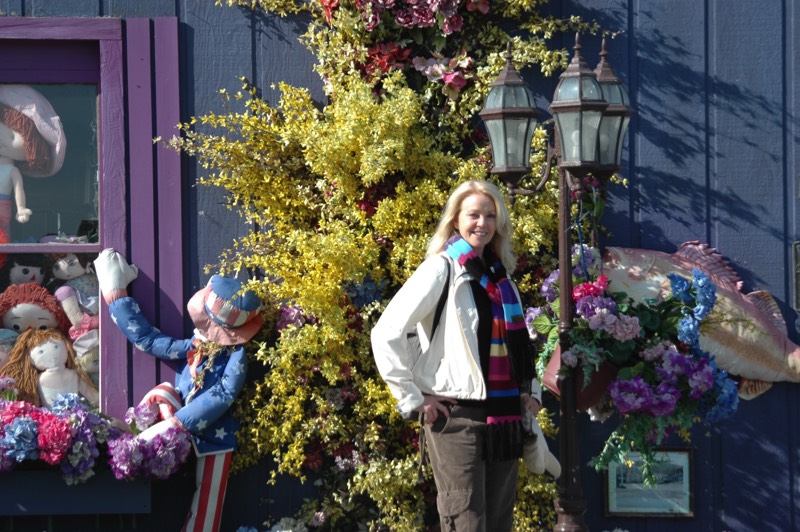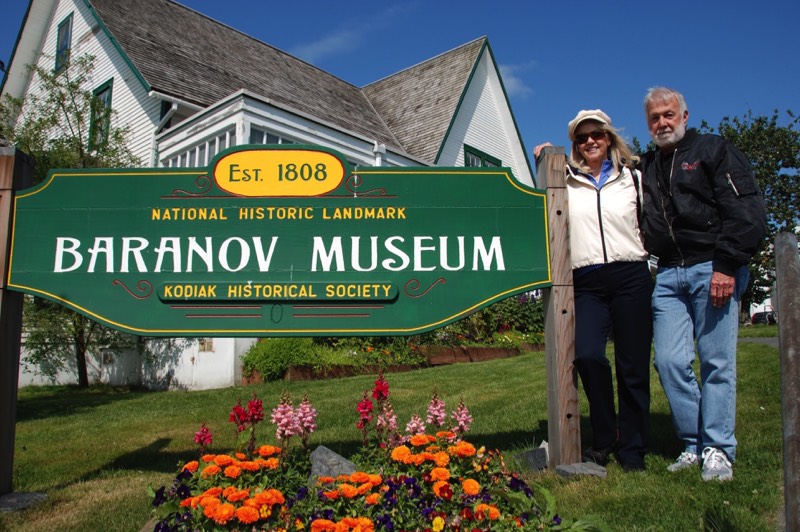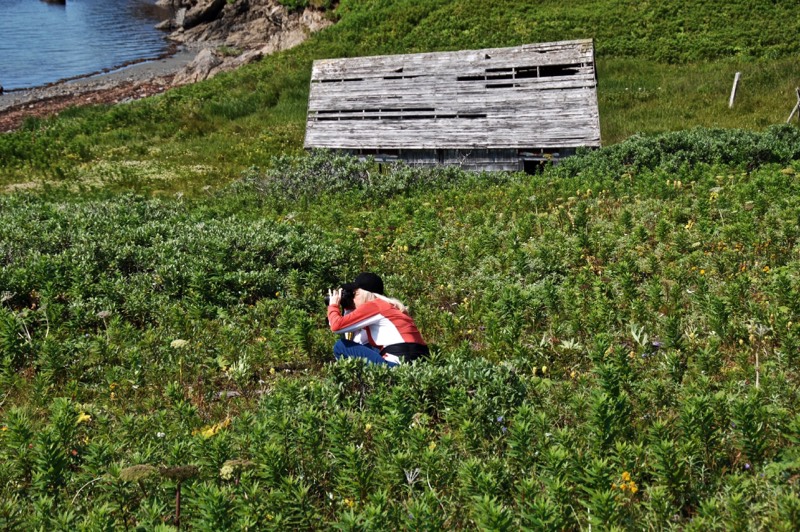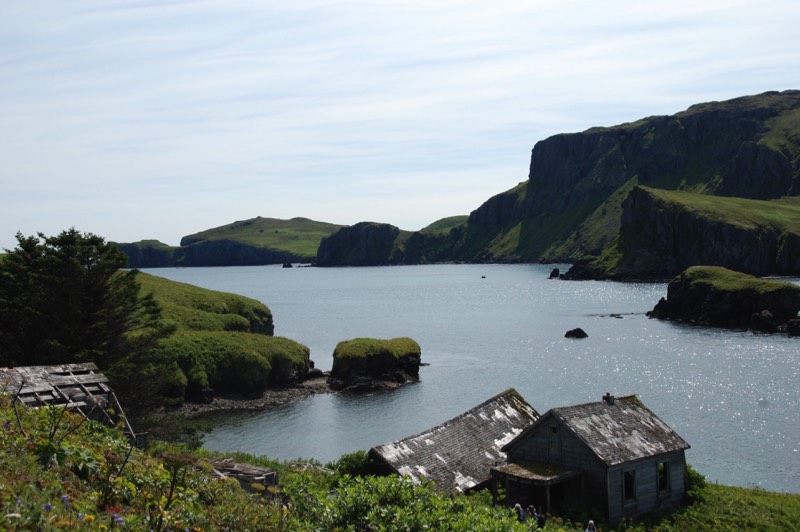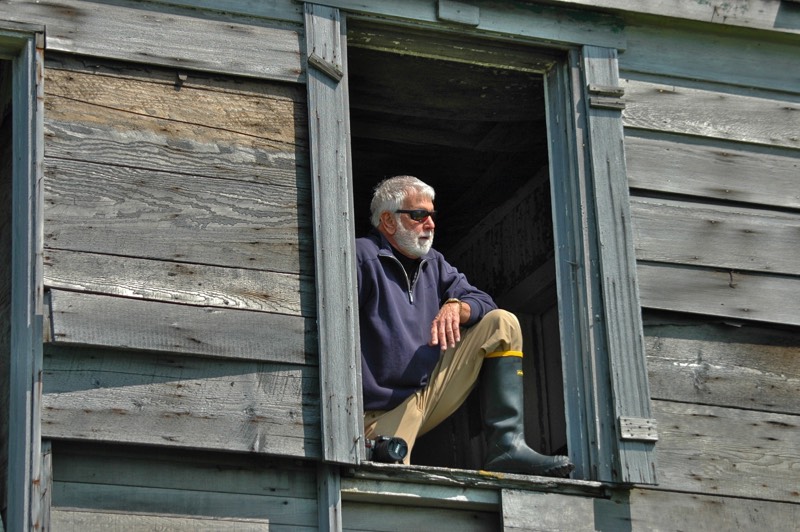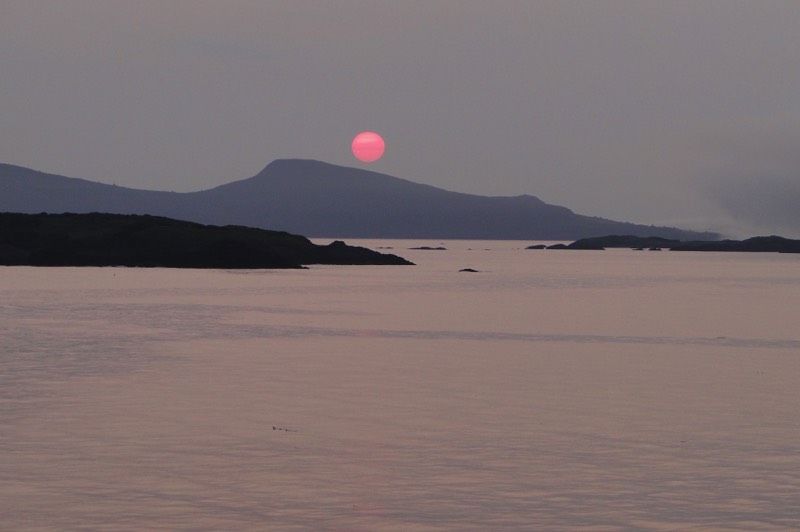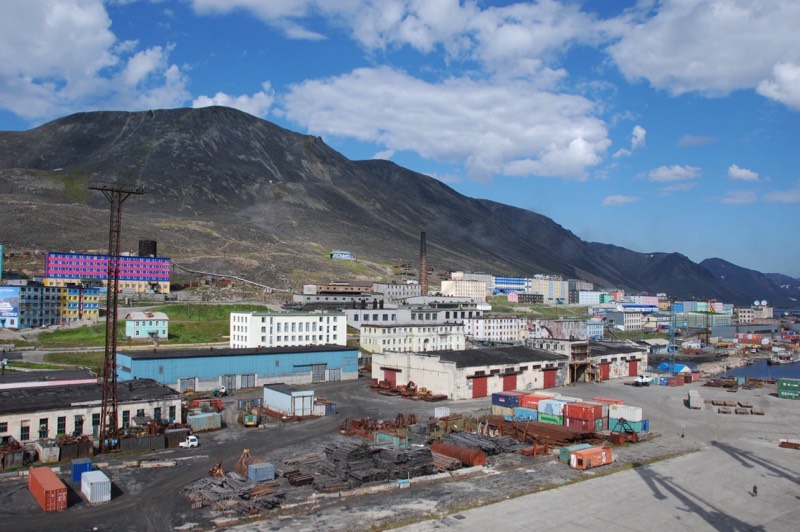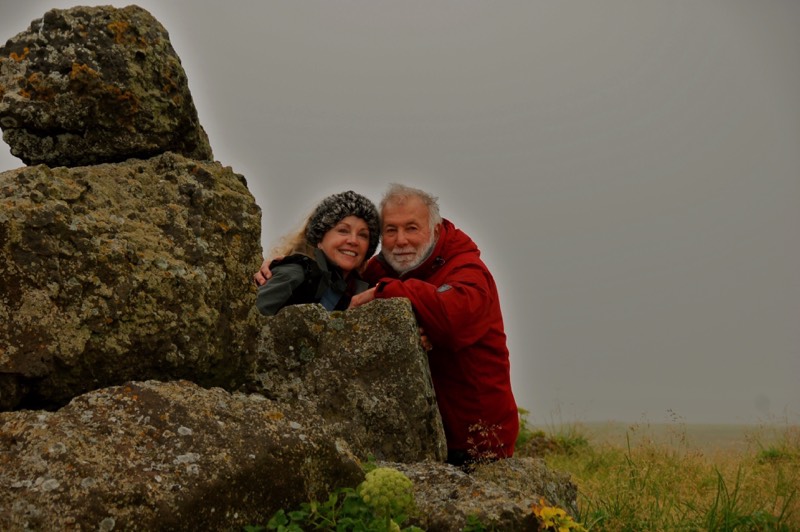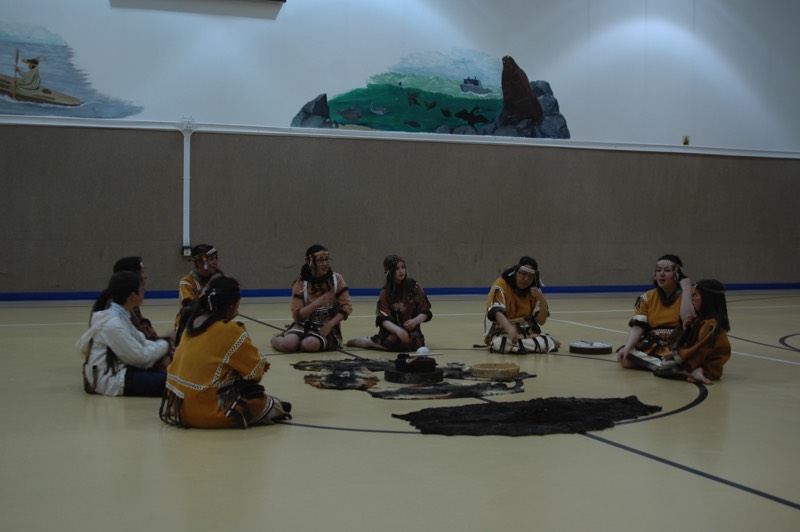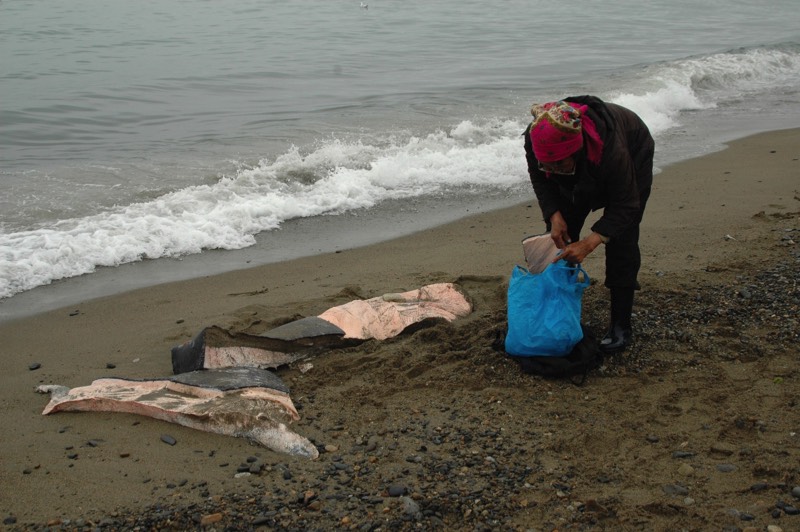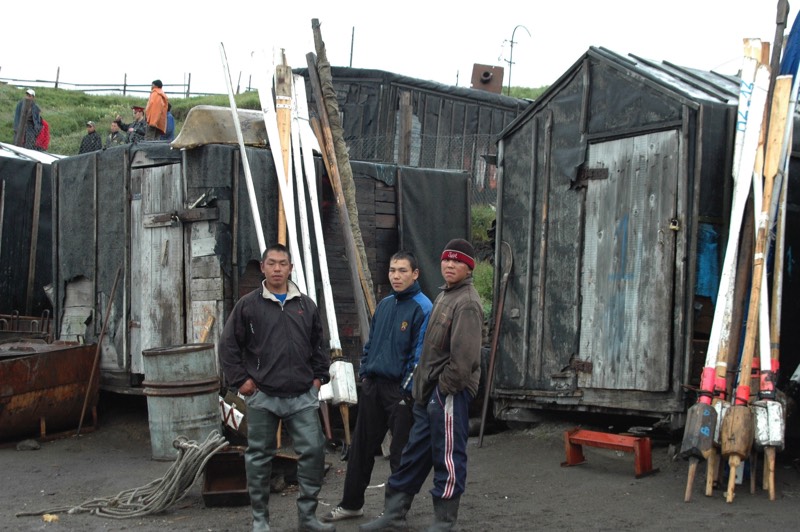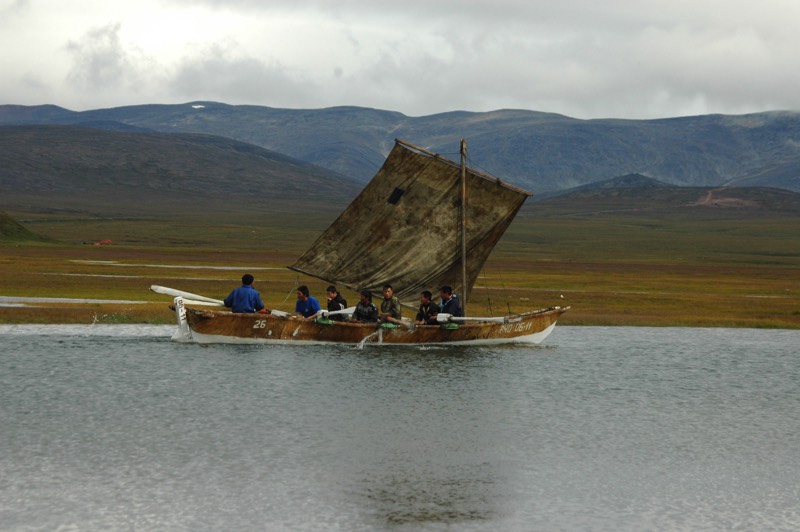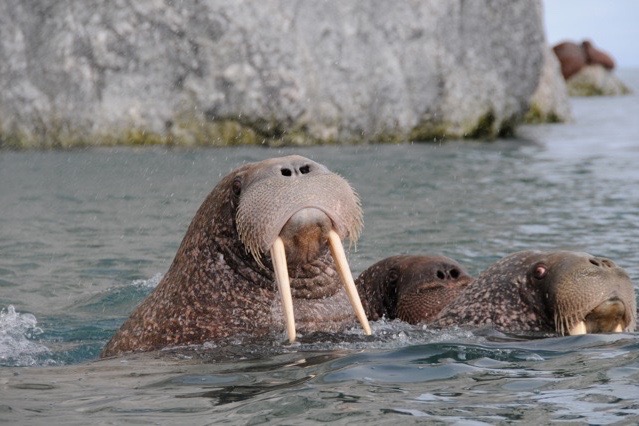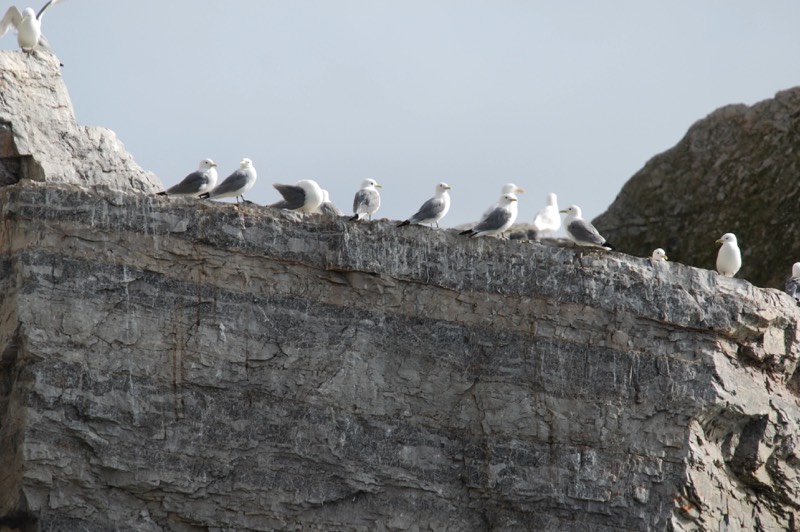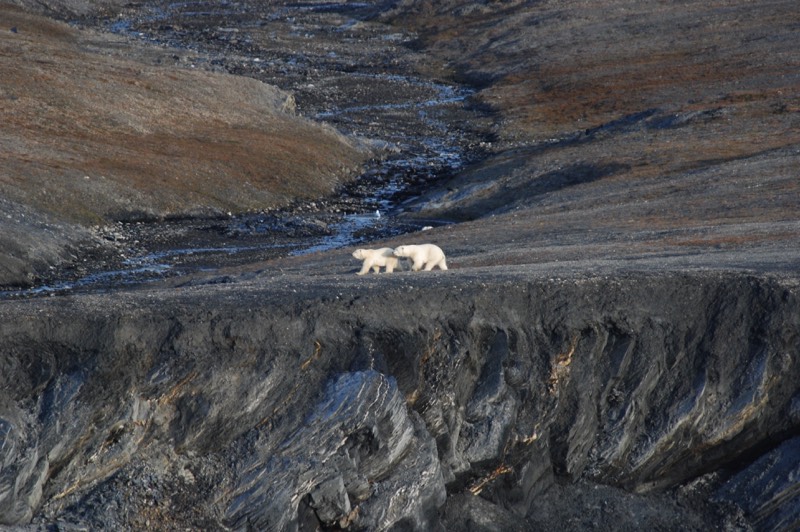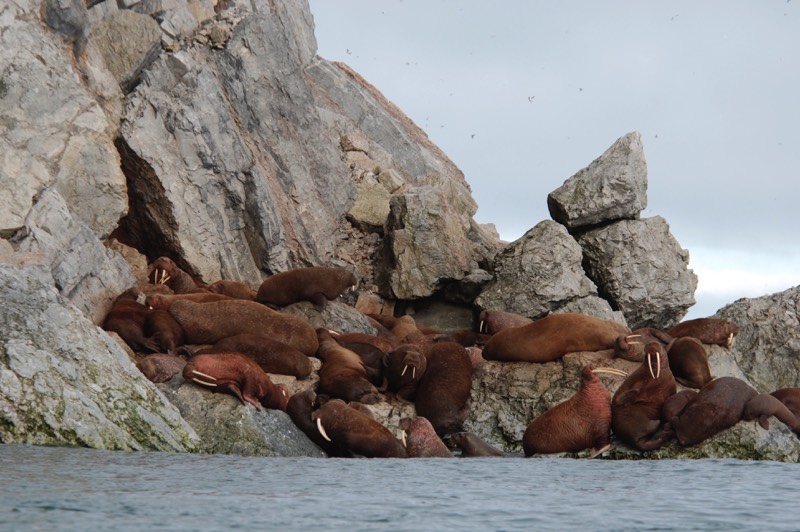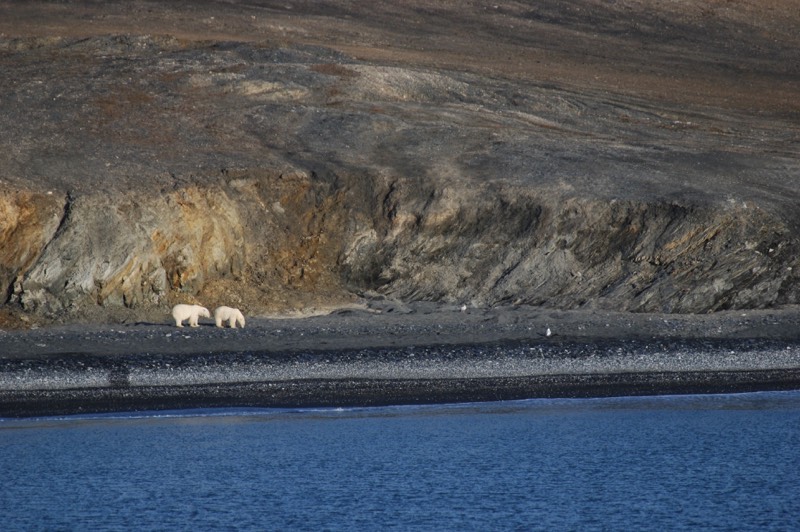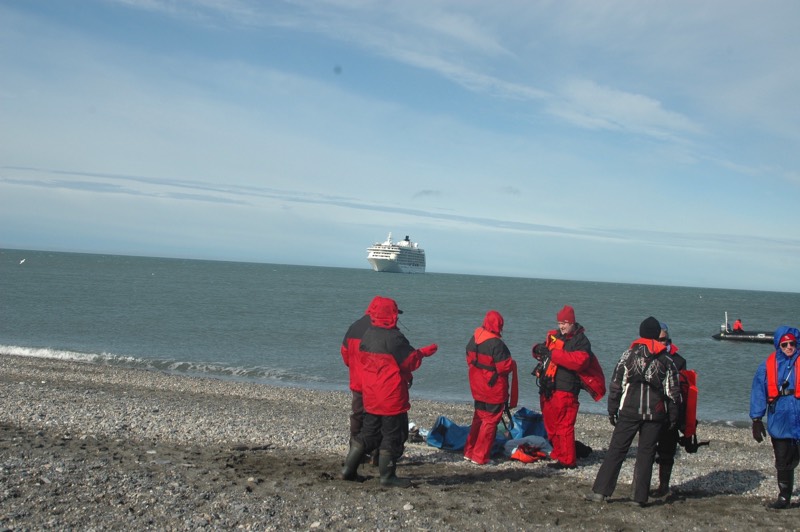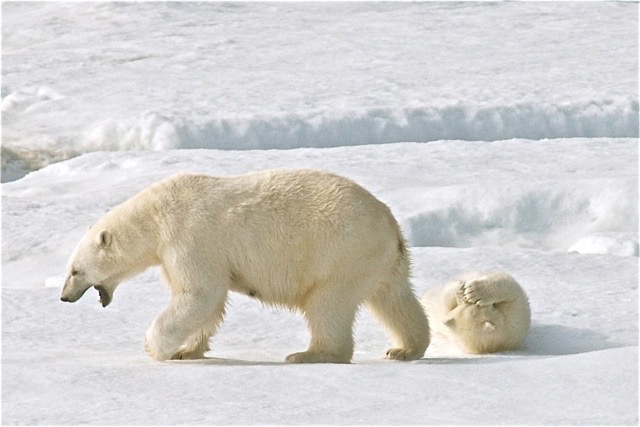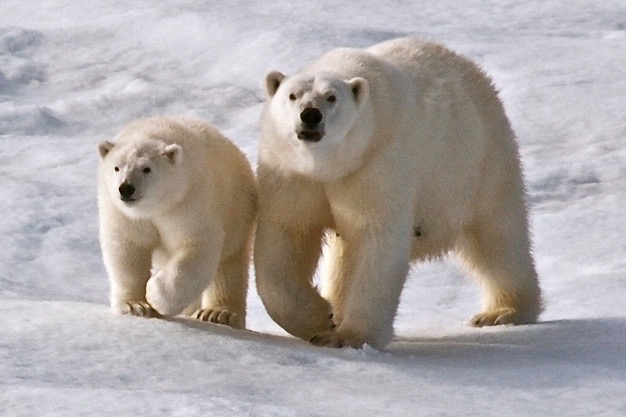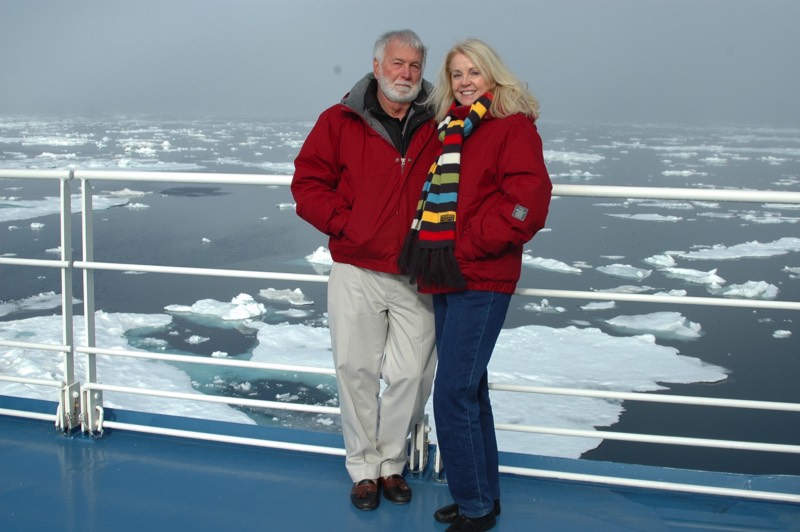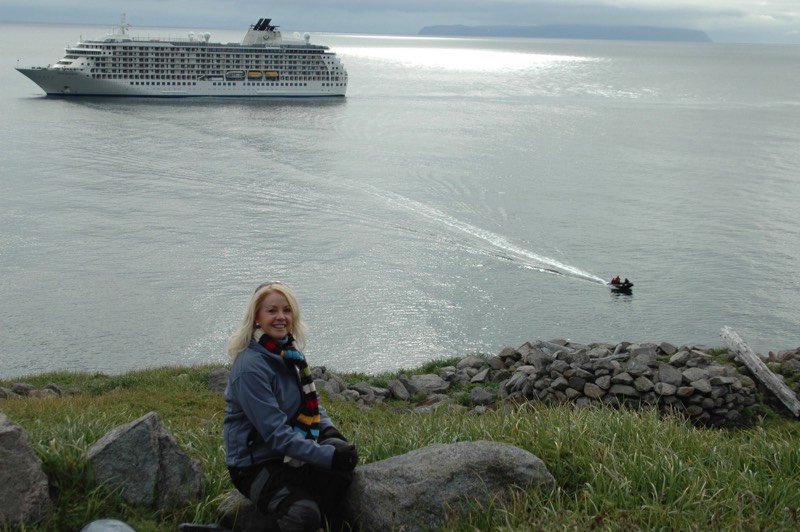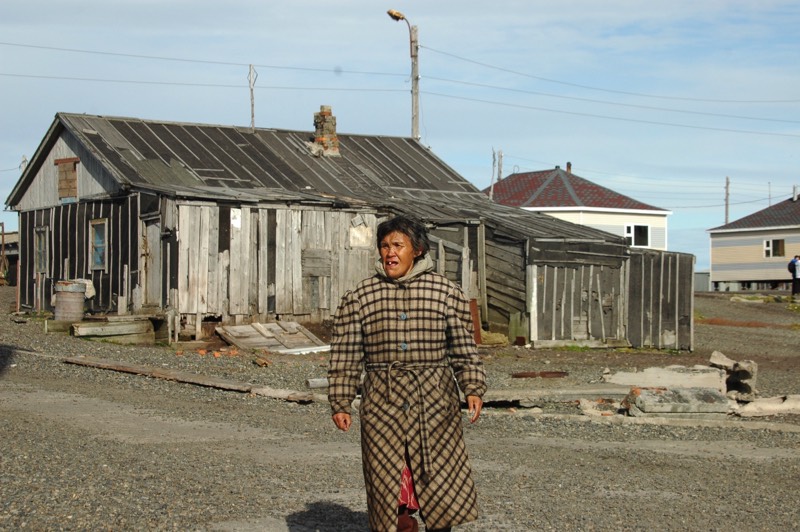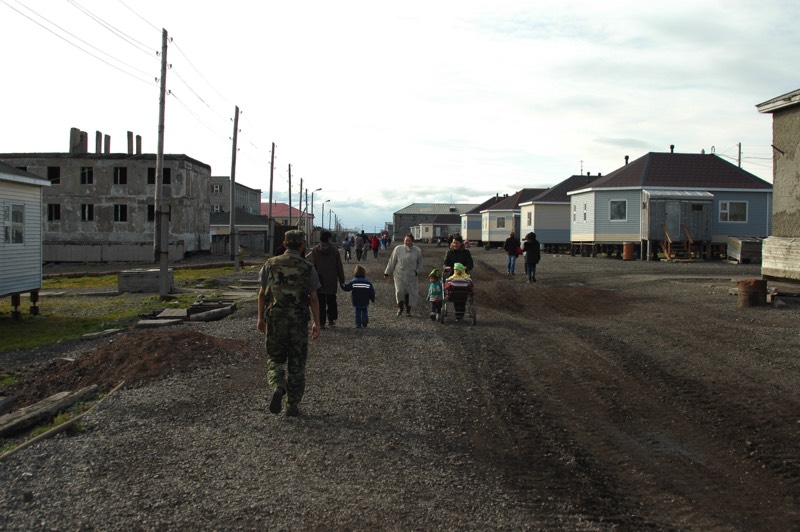2009 WORLD ADVENTURES
Quite a wonderful way to begin a New Year: snorkeling in the sapphire sea of the French Caribbean; encountering the biological phenomenon of shoals of schooling fish just a hairs breath away from the sun drenched beach of Josh Van Dyke. This lovely respite followed closely by a year overflowing with unique and marvelous travels- enjoyed with friends and family- to destinations as remote as the Russian Arctic and the Galapagos Islands and as close as Cabo San Lucas and the Western Coast of the United States. A Zeppelin airship flight over SF; scuba diving; tree-top zip lines through dense jungle canopies; swimming with dolphins; smooching Sloughs; swimming in ice cold water through sheer steep cliffs of a glorious gorge in Dominica, (realizing the most famous Pirate of the Caribbean, Johnny Depp swam there); sharing a chartered plane to fly into the isolated Honduran-Mayan ruin of Copan; transiting the Panama Canal; traversing the Sea of Cortez; a glorious trip by train through Mexico’s majestic Copper Canyon; meeting “George” the world’s oldest Tortoise: these experiences and more enriched our lives but the “show stopper” was our historic voyage through the Bering Sea up to Wrangle Island, we became the first foreign-flagged ship to visit this Island since Russia took control in 1924.
CHRISTMAS IN THE CARIBBEAN
Christmas on The World is always out of the ordinary, but what could be better than lolling away this hectic season cruising the tropical islands of the Caribbean, indulging in sun and fun in the Grenadines; BVI’s; Barbados; Dominica; Netherland Antilles and Turks and Calicos? A highlight of Christmas at sea is always Karyn and Geoff’s annual “gift exchange” where copious homemade cookies are consumed and the hilarious present swapping ends in a frenzied rush to snag the reallllly good gift!
On the enchanting island of Roseau, Dominica – we frolicked under a waterfall in the Emerald Pool where, legend has it: each dip takes off ten years. Rising steeply from the sea the island of Saba, shrouded in fog as our ship arrived, cast a mysterious air evoking images of King Kong; however, no big apes in site only 1200 friendly natives, many of whom descend from Dutch pioneers from the17th century. The casual lifestyle there was exemplified by a sign on a local hotel: gone diving! While perusing our photos – you’re likely to see Sharon with a “tall, dark and handsome man”. . . that would be Len disguised as Mr. Big from the James Bond movie “Live & Let Die”. Good friends and creative shipmates Jason & Mira threw a 007 Theme Party in Portraits – and the costumed guests had a ball!
On the enchanting island of Roseau, Dominica – we frolicked under a waterfall in the Emerald Pool where, legend has it: each dip takes off ten years. Rising steeply from the sea the island of Saba, shrouded in fog as our ship arrived, cast a mysterious air evoking images of King Kong; however, no big apes in site only 1200 friendly natives, many of whom descend from Dutch pioneers from the17th century. The casual lifestyle there was exemplified by a sign on a local hotel: gone diving! While perusing our photos – you’re likely to see Sharon with a “tall, dark and handsome man”. . . that would be Len disguised as Mr. Big from the James Bond movie “Live & Let Die”. Good friends and creative shipmates Jason & Mira threw a 007 Theme Party in Portraits – and the costumed guests had a ball!
Embarked: December 21st 2008
Debarked: January 13th 2009
Debarked: January 13th 2009
- Grenadines (Caribbean)
- Union Island (Caribbean)
- Guadeloupe (Caribbean)
- St Barts (Caribbean)
- St Martin (Caribbean)
- Jost Van Dyke (BVI)
- Bridgetown (Barbados)
- Castries (St Lucia)
- Roseau (Dominica)
- Saba (Netherlands Antilles)
- St Croix (US Virgin Islands)
- Tortola (BVI)
BELIZE, COSTA RICA AND PANAMA
Solo on the ship Sharon finally got to dive in the famed blue atolls of Cozumel and Belize. Then, from St Tomas Guadalupe she and four other residents chartered a plane and flew into Copan. After landing in a remote cow pasture they hopped into a four-wheeler, with their guide who spoke about 10 words of English fluently! Security was tight at the Honduran border: they waited anxiously at the toppling fence for a horse to meander across the road before heading out for “God knows where”! On the minuscule island of Guanaja, Honduras, Sharon returned from a dive to be greeted unexpectedly by two neighbors from WA. – they had watched our large ship glide unexpectedly into their remote waters, and wondered if by coincidence Len and/or Sharon might be onboard – talk about 6 degrees of separation!? Don’t let anyone ever tell you that Sloths are sloths – they get that reputation from their laboriously slow movement when on land, but they maneuver through the jungle like Tarzan, effortlessly gliding from tree to tree! Len arrived in Columbia and a few days later his son, Scott and his wife Mo, along with Dave with his BFF Brook, joined us on the ship for an adventure that began as we traversed the Panama Canal and ultimately led us to the Galapagos Islands and beyond.
Embarked: February 24th 2009
Debarked: March 15th 2009
Debarked: March 15th 2009
- Cozumel (Mexico)
- Belize (Belize)
- Roatan (Honduras)
- San Tomas (Guatemala)
- Guanaja (Honduras)
- San Andres Island (Colombia)
- Corn Island (Nicaragua)
- Puerto Limon (Costa Rica)
- Transit Panama Canal (Panama)
- Flamenco Island (Panama)
GALAPAGOS ISLANDS AND PERU
Equador’s most famous national park, the Galapagos Islands, surely isn’t any less enthralling now than it must have been a hundred years ago when the Beagle’s Captain FitzRoy dropped anchor, and Charles Darwin undertook his monumental studies of the wondrously diverse wildlife that inspired his book, On The Origin of Species. From Panama City to Guayaquil, Equador our party of six flew to San Cristobel and boarded our luxury cruiser, The Queen of the Galapagos: home for the next week. Our naturalist guide, Billy, a former mayor had a thorough knowledge of the geology, biology, history, current status and gossip of the Galapagos. He knew when and where to be in order to make the most of our time, and so our days, dawn to dusk, were spent snorkeling with sharks, rays, turtles and sea lions; visiting nesting grounds of Frigate Birds, Pelicans, Boobies, Tropical birds, etc. and roaming gorgeous, deserted, pristine beaches that made our hearts sing! The saying “take only pictures and leave only footprints” rang true; however, each of us, happily water-soaked and sun-baked explorers, carried away many special memories from these enchanting islands and this rare and irreplaceable experience.
Embarked: March 15th 2009
Debarked: March 27th 2009
Debarked: March 27th 2009
- Guayaquil (Ecuador)
- Galapagos Islands (Ecuador)
- Alcapulco (Peru)
- Trujillo (Peru)
SEA OF CORTEZ EXPEDITION
It is always special when the ship docks in San Diego, but this trip was extra special because my daughter, Holly, jumped on board for a mini vacation . . . our first few days were spent relaxing, enjoying movies and room service. Then my niece, Crystal, joined us in Cabo for an 11- day roundtrip expedition through the Sea of Cortez: snorkeling; zodiac cruising and kayaking - exploring pristine Islas guided by our expedition team of naturalist; botanist; marine mammal specialist; conservationists; ornithologists and explorers. These events were augmented by educational presentations and followed by lazy evenings picnicking on uninhabited beaches; and dinner parties made easy with in-room dining. At Topolobampo, we left the ship for an adventurous journey overland by train, through Mexico's scenic Copper Canyon. Seven times larger than the Grand Canyon, it consists of a series of over 20 canyons formed by six rivers. It was a rare and fun-filled excursion and we were overjoyed to discover that our rooms at Posada Barrancas Mirada literally hugged the rim of the steep gorge overlooking Tarahumara Indians living in the canyon caves far below. Back in Cabo, we were joined by Crystal’s big sis, Marisa and her husband Tyson, and her parents - my brother Ernie and his wife Connie. We enjoyed life on board the ship indulging in as many lunches and dinners as possible served on our back deck enjoying our private view of the Baja Peninsula. One outstanding day was spent on a catamaran cruising the crystal blue waters; swimming; snorkeling; sunning and enjoying muy Cerveza and tasty Mexican cuisine provided by our crew. It was indeed an excellent adventure to share with family!
Embarked: May 12th 2009
Debarked: May 31st 2009
Debarked: May 31st 2009
- San Diego (USA)
- Cabo San Lucas (Mexico)
- La Paz (Mexico)
- Sea of Cortez (Mexico)
- Topolobampo (Mexico)
WEST COAST OF UNITED STATES
As our ship cruised the west coast of the US, we had many fun outings and adventures. Fellow travelers Karyn and Geoff who own a ranch in Salinas, lined up a flight in a Zeppelin over San Francisco. It was awesome, spectacular fun – sipping champagne while floating over San Francisco’s famed bay bridge - with a group of friends from the ship! Great Fun! In Astoria, Oregon Sharon and Graci spent a couple of very fun-filled days seeing everything that small town had to offer. Wanna know the train stops? Of course, there’s no place like home! When the ship docked in Seattle, we co-hosted a lovely dinner party held on the spectacular property of Arlene and Benie Wright. Her art collection and sculpture garden is absolutely one-of-a-kind, drop-dead gorgeous!! Len donned his Captain’s hat and gave a really fun helicopter flight over Seattle to Mira, Jason and a couple of their friends . . . there is absolutely nothing like flying around Seattle’s famous landmark Space Needle!! Just ask em!
Embarked: June 1st 2009
Debarked: June 24th 2009
Debarked: June 24th 2009
- San Diego (USA)
- Los Angeles (USA)
- Monterey (USA)
- San Francisco (USA)
- Portland (USA)
- Astoria (USA)
- Seattle (USA)
ALEUTIAN ISLANDS ALASKA
The Aleutian Islands, acquired with the rest of Alaska from Russia, extend out from the Aleutian mountain range of SW Alaska. We docked at Kodiak, for just one day, but it was well spent exploring the town with two wonderful professional photographers, Pat and Rosemary Keough, who were part of our expedition team and were on board to both document our expedition and to offer classes and photo tips to us amateurs. From Kodiak we cruised along the Shelikof Strait stopping at Unga Island- part of the most active volcanic belt on Earth, the Ring of Fire. Founded in the 1800s and supported by cod fishing and hard rock mining: by 1969 it was abandoned, and the many buildings still standing are slowly decaying into ruin - this venue offered us a unique and picturesque setting to hone our photographic skills. Dutch Harbor, the official port name for Unalaska, 11th largest city in Alaska, was once upon a time, a boomtown and the center of our nation’s most productive fishing grounds. Today it is still a bustling city but the days of “get rich quick” seem to be gone for good! We enjoyed our zodiac outings accompanied by Conrad, a Botanist, Marine Mammalogist, Marine Invertebrate Biologist; Ornithologist and General Naturalist – besides being extremely well versed in all the above, he has made over 70 voyages to the Antarctic and is a genuinely nice guy, and a wonderful and colorful speaker.
Embarked: August 6th 2009
Debarked: August 12th 2009
Debarked: August 12th 2009
- Anchorage (USA)
- Kodiak (USA)
- Unga Island (USA)
- Dutch Harbor (USA)
BERING SEA RUSSIA EXPEDITION
Archaeologists date the peoples of the Bering Sea as early as 15,000 years ago – Eskimos and their descendents. Our Bering Sea Expedition took us to some of the least populated regions of our planet: home to polar bears; fur seals; Sea lions; 30,000 species of birds; beluga whales; orcas; and walrus. We were instructed in what to wear; what to expect; and were given wildlife viewing guidelines; bear etiquette; bird etiquette; and wet-zodiac landing instructions. On board the ship we had the “gold standard” of Naturalists; Conservationists; Marine Mammal Specialists; Zoologists; Seabird Biologists; Field Biologists; and, a letter from Vladimir Putin giving us authorization for our journey into the Russian Arctic Icecaps, with special permission to anchor off Wrangle Island: the first foreign flagged ship to do so since 1924.
The rugged, volcanic, and mostly fog-shrouded Pribilof Islands are sparsely inhabited by Alutes - skilled hunters by necessity –for nearly 200 years they were the main cog of an immense fur industry. St. George and St. Paul now part of the Alaska Maritime National Wildlife Refuge provide breeding ranges for a myriad of bird faunas and the mountainous coastline is dotted with seal rookeries. Seals are protected against commercial hunting; yet to the Alutes, who are in a process of maintaining subsistence skills and cultural recovery: they remain an important source of food, and are sparingly harvested down through generations.
Our stop at the small town of Provideniya, in the far north of the Chukotka Peninsula was a mandated stop: to clear Russian inspection. Our first impression was of rows of identical dilapidated, abandoned buildings rotting away - each façade newly painted in bright primary colors. We were eagerly and warmly welcomed by local teachers and trades people waiting to show us their town driving WWII vintage buses and trucks, A special show had been arranged in the community center and we were greeted by freshly baked loaves of bread served traditionally with a pinch of salt for luck.
Lorino Village: the faces of everyone we encountered are indelibly engraved in our memory. Words don’t come and do not describe; and so thankfully there are pictures . . . we’ll just let those pictures speak for now.
The rugged, volcanic, and mostly fog-shrouded Pribilof Islands are sparsely inhabited by Alutes - skilled hunters by necessity –for nearly 200 years they were the main cog of an immense fur industry. St. George and St. Paul now part of the Alaska Maritime National Wildlife Refuge provide breeding ranges for a myriad of bird faunas and the mountainous coastline is dotted with seal rookeries. Seals are protected against commercial hunting; yet to the Alutes, who are in a process of maintaining subsistence skills and cultural recovery: they remain an important source of food, and are sparingly harvested down through generations.
Our stop at the small town of Provideniya, in the far north of the Chukotka Peninsula was a mandated stop: to clear Russian inspection. Our first impression was of rows of identical dilapidated, abandoned buildings rotting away - each façade newly painted in bright primary colors. We were eagerly and warmly welcomed by local teachers and trades people waiting to show us their town driving WWII vintage buses and trucks, A special show had been arranged in the community center and we were greeted by freshly baked loaves of bread served traditionally with a pinch of salt for luck.
Lorino Village: the faces of everyone we encountered are indelibly engraved in our memory. Words don’t come and do not describe; and so thankfully there are pictures . . . we’ll just let those pictures speak for now.
Embarked: August 13th 2009
Debarked: August 18th 2009
Debarked: August 18th 2009
- Pribilof Islands (Bearing Sea)
- Saint Mattew (Bearing Sea)
- Saint George (Bearing Sea)
- Saint Paul (Bearing Sea)
- Provideniya (Russia)
- Lorino Village (Russia)
WILD RUSSIA-WRANGLE ISLAND
Navigating the narrow Bering Strait passage between Little Diomede and Big Diomede The World became the first foreign-flagged ship to sail between these Islands on the Russian side since the early 1930's. Upon reaching Wrangle Island we would become the first foreign-flagged ship to visit this island since Russia obtained control over the area in 1924. Countless preparations had been made for the day that our ship arrived at Wrangle and our zodiac groups waited eagerly, prepared to debark onto this remote island, a UNESCO World Heritage Site, in search of Polar bear. As we hung over the ship’s railing binoculars in hand: an extraordinary sight welcomed us: dozens of Polar bears! Waaaaaay too many for us to safely set foot upon the beach!! Secure in our launched Zodiacs we sighted Polar bears, walruses, seals, and other marine wildlife along with a myriad of seabirds and shorebirds galore. Our second stop at the Wrangle was spent on the opposite side of the island, hiking with Dr. Nikita Ovsyanikov, world-renowned Researcher, Zoologist, and Conservationist: having spent 31 field seasons in the Arctic on long-term research projects on Polar bear behavioral ecology, his tremendous sensitivity, understanding and sincere love and fascination for these creatures was beyond measure. Our ship set yet another record on this voyage to the wild frozen north: overall 104 different Polar bear were sighted: a record for one voyage!
Embarked: August 19th 2009
Debarked: August 21st 2009
Debarked: August 21st 2009
- Wrangle Island (Russia)
ARTIC ICE CAP, UELEN VILLAGE, AND CAPE DEZHNEV
Cruising the Chukchi Sea, north of Wrangle Island and Crossing the Arctic Circle at 66° 33”N – on the International Date Line was really a unique occurrence - we straddled two time zones, two continents, and two major oceans as we navigated among ice floes, and we lost an entire day! Our expedition had been blessed with good weather from the start, and it continued as we navigated the ice flows hoping to hear the words: “Polar Bear sighted” announced over the ship’s PA system. Magically, one morning as the powdery mist of a chilly dawn faded, an inquisitive Polar Bear mother and her cub approached the ship. As we watched enthralled from the bow of our hushed ship, Len & I took photo after photo until the pair gave us one last curious look, and turned to walk back into the mist.
Cruising south of the Arctic Circle on the Siberian side of the Bering Strait we managed to land on the typically windswept and fogged-in village of Uelen , . . the Chukchi and Inuit people there have a long tradition of walrus ivory and bone carving - and we had quite an adventure seeking out local artisans who could/would sell us their wares – the village was divided into two distinct halves, and we were not allowed to travel into the “Russian sector” but had to negotiate with a middleman who lived there and arranged for our purchase. It was all very cloak and dagger, but well worth the intrigue! On Cape Dezhnev we climbed a steep hill to the lighthouse/monument to Semyon Dezhnev, the first recorded European to round its eastern tip (in 1648). Once a Russian military outpost, now all that remains are collapsing Soviet era structures near the remains of an old Eskimos village. Still, it gave us the opportunity to spend a lovely day traipsing over hill and dale, and taking yet more photos!
Cruising south of the Arctic Circle on the Siberian side of the Bering Strait we managed to land on the typically windswept and fogged-in village of Uelen , . . the Chukchi and Inuit people there have a long tradition of walrus ivory and bone carving - and we had quite an adventure seeking out local artisans who could/would sell us their wares – the village was divided into two distinct halves, and we were not allowed to travel into the “Russian sector” but had to negotiate with a middleman who lived there and arranged for our purchase. It was all very cloak and dagger, but well worth the intrigue! On Cape Dezhnev we climbed a steep hill to the lighthouse/monument to Semyon Dezhnev, the first recorded European to round its eastern tip (in 1648). Once a Russian military outpost, now all that remains are collapsing Soviet era structures near the remains of an old Eskimos village. Still, it gave us the opportunity to spend a lovely day traipsing over hill and dale, and taking yet more photos!
Embarked: August 22nd 2009
Debarked: August 26th 2009
Debarked: August 26th 2009
- Arctic Ice Cap (Russia)
- Cape Dezhnez (Russia)
- Uelen (Russia)
- Provideniya (Russia)
- Nome (USA)
